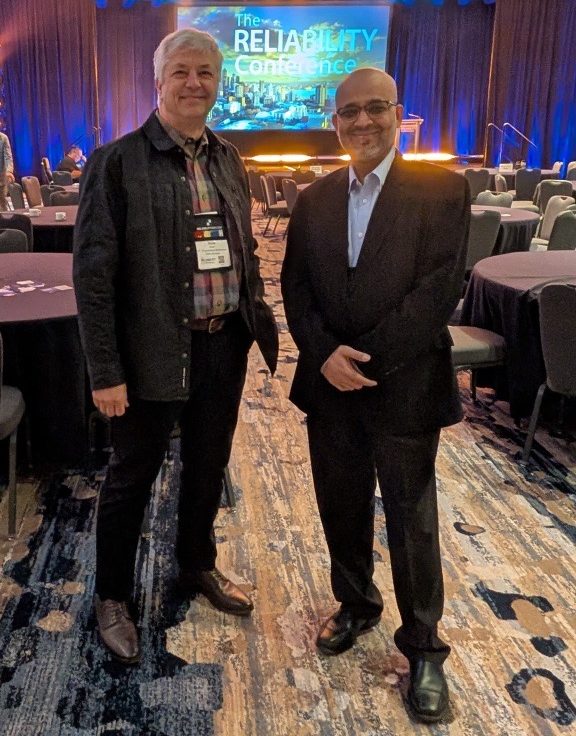
David Auton and Ali Mohammed
In the pursuit of improved reliability, organizations often reach for sophisticated methodologies and comprehensive tools. But perhaps sustainable improvement doesn’t require more complexity—just a more strategic application of simplicity.
David Auton, Vice President of Service Excellence, Engineering & Maintenance, and Sabahat (Ali) Mohammed, Senior Director of Reliability & Engineering, presented on this topic at the 2025 RELIABILITY® Conference in Bellevue, Washington. Their presentation, “Fit for Purpose Defect Elimination,” addressed approaches to failure reduction and reliability improvement.
Beyond One-Size-Fits-All
The presentation addressed a common industry practice: applying the same defect elimination approach to all reliability issues regardless of their complexity. According to the presentation materials, organizations typically use a “one size fits all” methodology, which can be problematic in two ways. For simple problems, these approaches can be excessive, using sophisticated analysis where straightforward solutions would suffice. Conversely, standardized approaches may be inadequate for truly complex issues that require more rigorous investigation.
This mismatch can create implementation challenges. When defect elimination methodologies are too complex for everyday application, they may become difficult to embed in an organization’s operations. Teams often struggle to apply processes they find cumbersome or overly technical.
The Right Tool for the Right Problem
Mohammed and Auton’s presentation covered a more nuanced approach: matching the complexity of problem-solving tools to the nature of the defect itself. This fit-for-purpose methodology recognizes that different failures necessitate distinct responses.
The presentation materials indicate that while many tools exist for defect elimination, most are too complex and varied to support a consistent, organization-wide culture. The presentation addressed understanding and applying simpler tools to most failures. This approach can make it easier for teams to use the proper techniques and progressively eliminate root causes.
Stages of Defect Identification
The presentation addressed various stages of defect identification and the alignment of processes, mindsets, and culture for resolving common defects at each phase. Different phases in the defect lifecycle may call for different approaches. This perspective on staging promotes the implementation of appropriate interventions at every stage of the defect identification process.
Cultural Aspects of Reliability
The presentation materials discussed how practical tools that teams can understand and apply consistently can help organizations more effectively eliminate the root causes of everyday failures. When methods are accessible and proportionate to the problem, they are more likely to be embraced as standard practice rather than exceptional procedures, helping integrate defect elimination into everyday work.
Problem-Solving Techniques
The presentation also provided a high-level overview of various problem-solving processes and techniques that can be implemented to minimize defects and improve reliability at sites. These approaches, when applied appropriately to match the complexity of the problem, help support overall plant performance.
Fit-for-Purpose Reliability
The fit-for-purpose approach discussed in the presentation provides a practical framework that strikes a balance between rigor and accessibility. By aligning methods with the complexity of the problem, organizations can drive more consistent results while fostering a culture where defect elimination becomes standard practice.
At C&W Services, our reliability experts understand the delicate balance between comprehensive analysis and practical implementation. If your organization is looking to enhance its approach to defect elimination, our team can help you develop a fit-for-purpose strategy that drives sustainable reliability improvements.
CLICK HERE to access the Reliability Centered Strategies Presentation Deck
Connect with us to learn more about how we can help.




